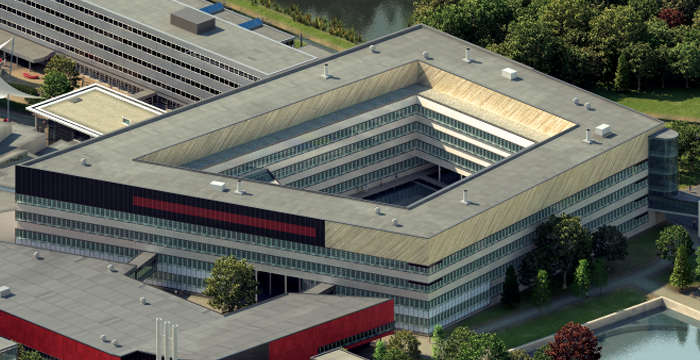Jeroen Vollenbroek received his BSc and MSc in Electrical Engineering at the University of Twente. During his master, which he finished in 2016, he specialized in microtechnology and Lab on a Chip systems. He received a joint doctorate from the University of Twente (BIOS Lab on a Chip group) and Utrecht University (Inorganic Chemistry and Catalysis) for his PhD thesis entitled “Microreactors for single catalyst particle diagnostics” in 2020. After that, he worked as a post-doctoral researcher at the University Medical Center Utrecht (UMCU, department of Nephrology and Hypertension), where he developed electrocatalytic systems for the oxidation of urea, with the aim of improving dialysate regeneration for use in a wearable artificial kidney. Currently, he is employed as a senior post-doctoral researcher at the University of Twente (BIOS Lab on a Chip group) and the University Medical Center Utrecht (department of Nephrology and Hypertension). Part of his UMCU appointment is detached at research institute Imec NL. He tries to bring together expertise of the technical research institutes for projects focused on the development of microdevices of artificial and implantable kidney systems and environmental applications. Some of the projects and grants he is involved in can be found under the research tab.
Expertise
Chemistry
- Reaction Temperature
- Microfluidics
- Pressure
- Reaction Condition
Material Science
- Catalyst
- Particle
- Droplet
- Temperature
Organisations
Current Research and Collaborations
As an Assistant Professor at UMCU and a researcher at the University of Twente, I have established a dedicated research line on micro/nanotechnology for artificial kidney systems. I supervise three PhD students and one postdoc, guiding them in cutting-edge projects that I have initiated through grant applications and strategic collaborations.
Within the NXT GEN growth fund, subsidized by the Dutch government, I am leading the establishment of a state-of-the-art test lab at UMCU. This facility is designed to expedite the translation of artificial kidney innovations from bench to bedside in collaboration with both academic and industrial partners. The test lab is equipped with advanced systems for in-vitro and in-vivo studies, including real-time monitoring of protein-bound uremic toxins, testing the durability of miniaturized hemofilters, and developing sorbents for portable dialysis machines.
These test facilities and collaborations are being actively utilized in several projects, including the UKID project, where we develop sorbent technology for portable artificial kidneys, and the MI-TRAM project, focusing on non-invasive methods for improving protein-bound toxin removal for kidney patients. Additionally, I lead a work package within the KIDNEW project, collaborating with IMEC and Utrecht University to integrate a miniaturized silicon-based flat membrane hemofilter with a bio-artificial kidney module. In this project, we developed a rapid prototyping lab critical to our advancements. I have also secured funding for the MICROMERULUS project, where I am developing novel, ultra-strong silicon nitride membranes with specialized coatings for use in artificial kidneys. For this, I have partnered with the Membrane Science and Technology group at the University of Twente, experts in novel membrane coatings.
Publications
Jump to: 2026 | 2025 | 2024 | 2023 | 2021
2026
2025
2024
2023
2021
Research profiles
Courses academic year 2025/2026
Courses in the current academic year are added at the moment they are finalised in the Osiris system. Therefore it is possible that the list is not yet complete for the whole academic year.
Courses academic year 2024/2025
Address

University of Twente
Carré (building no. 15), room C2243
Hallenweg 23
7522 NH Enschede
Netherlands
University of Twente
Carré C2243
P.O. Box 217
7500 AE Enschede
Netherlands